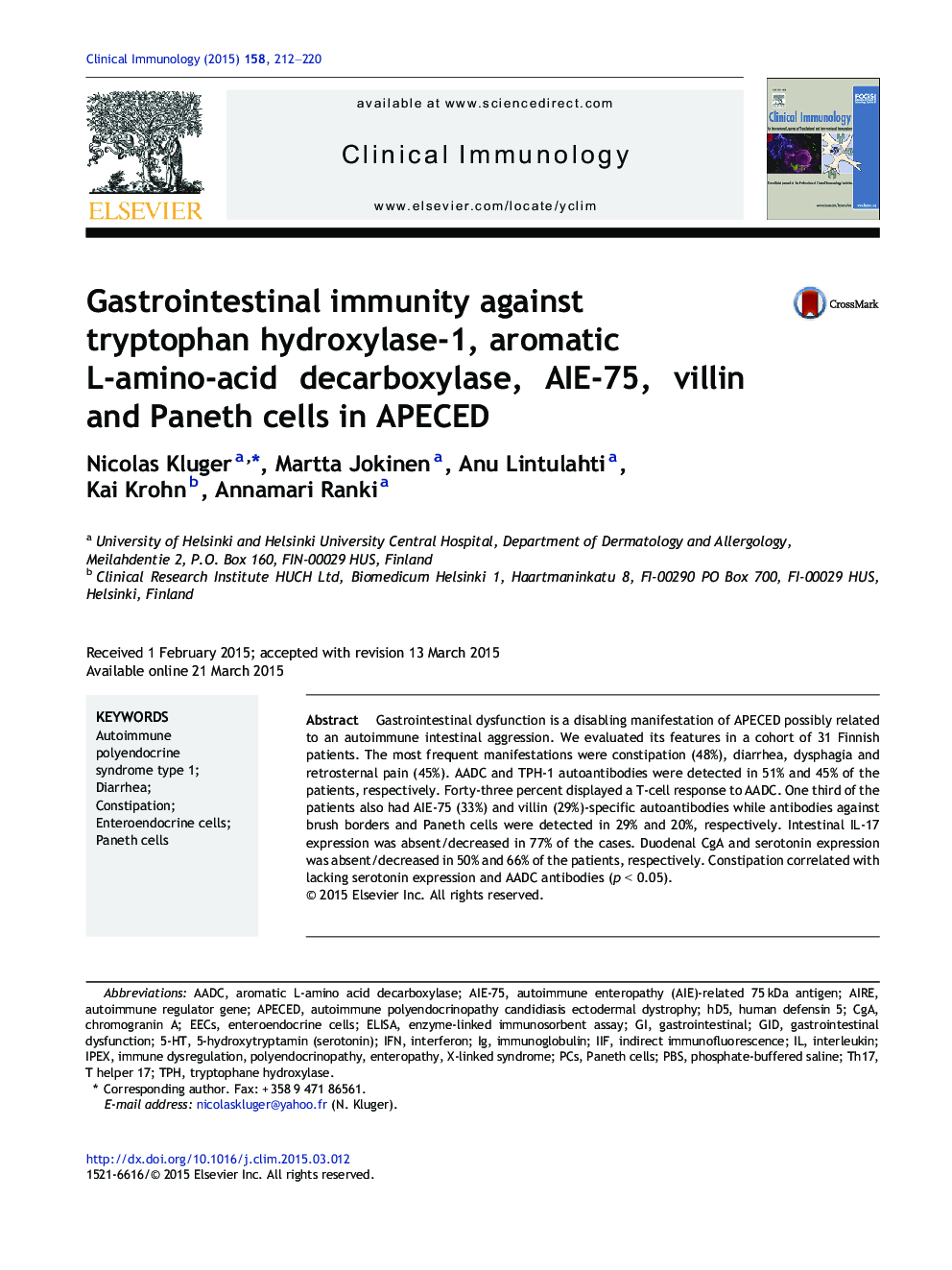| Article ID | Journal | Published Year | Pages | File Type |
|---|---|---|---|---|
| 6087435 | Clinical Immunology | 2015 | 9 Pages |
Abstract
Gastrointestinal dysfunction is a disabling manifestation of APECED possibly related to an autoimmune intestinal aggression. We evaluated its features in a cohort of 31 Finnish patients. The most frequent manifestations were constipation (48%), diarrhea, dysphagia and retrosternal pain (45%). AADC and TPH-1 autoantibodies were detected in 51% and 45% of the patients, respectively. Forty-three percent displayed a T-cell response to AADC. One third of the patients also had AIE-75 (33%) and villin (29%)-specific autoantibodies while antibodies against brush borders and Paneth cells were detected in 29% and 20%, respectively. Intestinal IL-17 expression was absent/decreased in 77% of the cases. Duodenal CgA and serotonin expression was absent/decreased in 50% and 66% of the patients, respectively. Constipation correlated with lacking serotonin expression and AADC antibodies (p < 0.05).
Keywords
5-HTAPECEDPBSHuman Defensin 5Autoimmune polyendocrine syndrome type 1immune dysregulation, polyendocrinopathy, enteropathy, X-linked syndromeAADCCGAT helper 17GIDIPEXIIFTh17TphHD5aromatic l-amino acid decarboxylaseGastrointestinal dysfunctionDiarrheaIndirect immunofluorescenceimmunoglobulin interferonIFNinterleukinEnzyme-linked immunosorbent assayELISAGastrointestinalPCsPaneth cellsenteroendocrine cellsautoimmune polyendocrinopathy candidiasis ectodermal dystrophyPhosphate-buffered salineAIREautoimmune regulator geneChromogranin AConstipation
Related Topics
Life Sciences
Immunology and Microbiology
Immunology
Authors
Nicolas Kluger, Martta Jokinen, Anu Lintulahti, Kai Krohn, Annamari Ranki,
